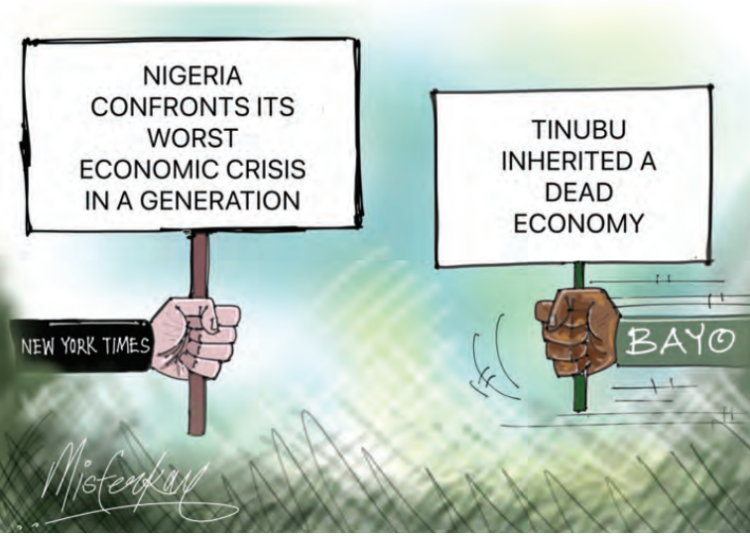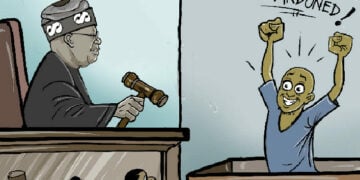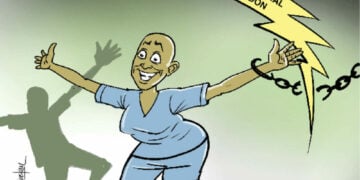Bayo Onanuga’s recent response to a New York Times article on Nigeria’s economic condition under President Tinubu reveals a persistent elite disconnect, a phenomenon sharply criticized by the late Pius Adesanmi in 2016. Onanuga, the Special Adviser to the President, offers a dangerously myopic perspective that downplays the severe economic struggles of millions of Nigerians. This dismissive attitude is not new for Onanuga, who has a history of trivializing the nation’s economic challenges. Accurate representation of these issues is crucial for effective policy formulation and maintaining public trust, yet his stance risks deepening the divide between the government and its citizens. The stark contrast between the optimistic narrative he promotes and the grim economic reality marked by high inflation and a deteriorating business environment undermines efforts to address Nigeria’s economic problems.
The Current Economic Landscape
Recent data from Nigeria’s National Bureau of Statistics (NBS) paint a bleak picture. As of May 2024, Nigeria’s inflation rate has surged to 33.95%, with food inflation reaching an alarming 40.66%. These figures reflect a severe erosion of purchasing power, particularly impacting the lower and middle classes who spend a large portion of their income on essential commodities. Rising fuel prices and increased costs of imported goods due to the depreciating naira further strain household budgets, making it difficult for families to meet their basic needs.
High inflation is a symptom of deeper economic issues. Despite President Tinubu’s promises of economic reform, the policies implemented so far have shown little improvement for the average Nigerian. The continued exit of companies from Nigeria further highlights the deteriorating business environment, exacerbating unemployment and economic stagnation.
Onanuga’s Myopia
In his recent rebuttal to The New York Times, Onanuga paints an overly optimistic picture of Nigeria’s economic progress, dismissing any notion of a severe crisis. His implication that the current administration is successfully addressing inherited economic challenges contradicts starkly with data from the National Bureau of Statistics (NBS) and independent analyses, which clearly indicate worsening conditions for ordinary Nigerians. The continued exit of companies from Nigeria due to an unfavourable business climate further exacerbates unemployment and economic stagnation.
This isn’t the first time Onanuga has displayed such myopic views. During the Buhari administration, he gained notoriety for downplaying reported hardships by citing personal anecdotes of affordable food in local markets and an overbooked London-bound flight from Nigeria in 2016. Such reasoning epitomizes the “elite disconnect” described by Professor Pius Adesanmi, where the experiences of the privileged few overshadow the harsh realities faced by the majority.
Adesanmi’s critique remains relevant today as Onanuga continues to demonstrate a consistent pattern of denial and detachment from the real economic challenges facing Nigerians. This pattern not only hinders meaningful progress and effective policy formulation but also deepens the divide between the government and its citizens, undermining public trust and exacerbating social inequalities.
The Realities on the Ground
Rising inflation translates to real hardship for millions. The NBS report for May 2024 shows significant increases in the prices of basic food items, making daily meals less affordable for families. Housing, utilities, and transportation costs have also risen, straining household budgets further. The World Bank notes that the Central Bank of Nigeria’s monetary policy tightening is unlikely to curb this inflation effectively, pointing to deeper structural issues within the economy. Moreover, the challenging business environment has led to an exodus of companies from Nigeria, reflecting a lack of confidence in the market and resulting in job losses and reduced economic activity. Major firms leaving the country signify a loss of employment opportunities, exacerbating the unemployment crisis and diminishing the nation’s economic dynamism.
The Disconnect Continues
The persistent disconnect between Nigeria’s elite class and the everyday realities of its citizens remains a significant challenge. Bayo Onanuga’s response to The New York Times article exemplifies this ongoing issue. His attempt to downplay the severity of Nigeria’s economic crisis disregards credible data and perpetuates a narrative that undermines genuine progress. His rhetoric reflects a troubling trend among many in positions of influence, where the failure to acknowledge the deep-rooted economic struggles experienced by ordinary Nigerians hampers effective policymaking and exacerbates social inequalities. The “elite bubble” described by Pius Adesanmi, where the privileged few remain insulated from the harsh realities of the majority, remains as relevant today as it was in 2016.
The Way Forward
Addressing Nigeria’s economic crisis requires acknowledging the reality of the situation. The government must move beyond rhetoric and implement policies that provide tangible relief to the populace. This includes tackling inflation through comprehensive economic reforms, fostering a conducive environment for businesses, and ensuring that social safety nets are in place to support the most vulnerable.
Furthermore, there is a need for a shift in the mindset of the elite. Policymakers and influencers like Onanuga must bridge the gap between their privileged perspectives and the harsh realities faced by ordinary Nigerians. This requires engaging with diverse voices, particularly those from marginalized communities, and crafting policies that reflect their needs and aspirations. By trivializing the economic hardships faced by millions, Onanuga not only undermines credible data but also perpetuates a dangerous narrative that hinders meaningful progress.
As Pius Adesanmi eloquently argued, it is imperative for the elite to step out of their bubbles and engage with the real Nigeria. Only then can we hope to address the systemic issues that drive economic crises and work towards a more equitable and prosperous society for all Nigerians. The current economic data and independent analyses paint a dire picture that contradicts Onanuga’s optimistic portrayal. It is crucial for the government to recognize and address these challenges head-on, rather than dismissing them as mere propaganda. The future of Nigeria depends on our ability to confront these issues with honesty and a commitment to genuine reform.
Right of Reply
We have taken note of the article titled “India’s 2024 Election: A Turning Point” published in your newspaper on June 18, 2024. We wish to address certain inaccuracies in the analyses presented in the article.
The 2024 general elections are a testament to the robust democratic spirit and ethos of India, reaffirming the nation’s democratic credentials. The newly formed coalition government enjoys the full confidence of the people of India and is committed to fulfilling their aspirations. Coalition governments are neither new nor rare in India; the country has a long history of effective governance under such administrations. Concerns about potential instability, whether socio-economic or political, are unfounded.
Recent studies indicate that in the last six financial years, India has seen FDI inflows worth $435.1 billion, constituting 55% of the total FDI received over the previous two decades. As stated by the World Bank, India remains the fastest-growing large economy, demonstrating continued momentum in its growth trajectory. India’s socio-economic development will continue to be guided by policies based on our domestic needs and priorities. Similarly, our foreign policy priorities will remain driven by our national interests. It is important to underscore that in pursuing our developmental goals and foreign policy objectives, our government remains committed to the spirit of inclusivity, as emphasized by the motto of Vasudhaiv Kutumbakam.
–Vartika Rawat DHC & Counsellor (Pol, Press & Info) High Commission of India, Abuja (Nigeria).





